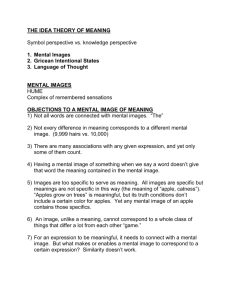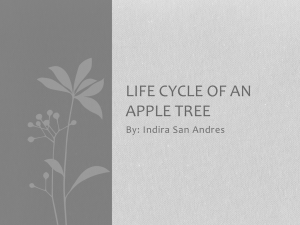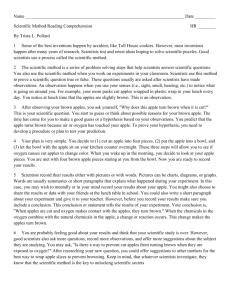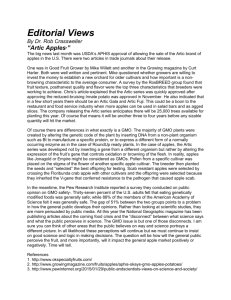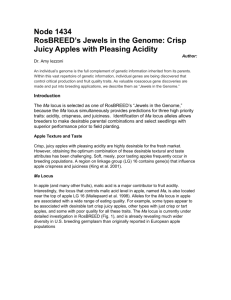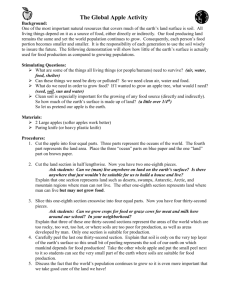Woman`s Own: Apple Diet
advertisement
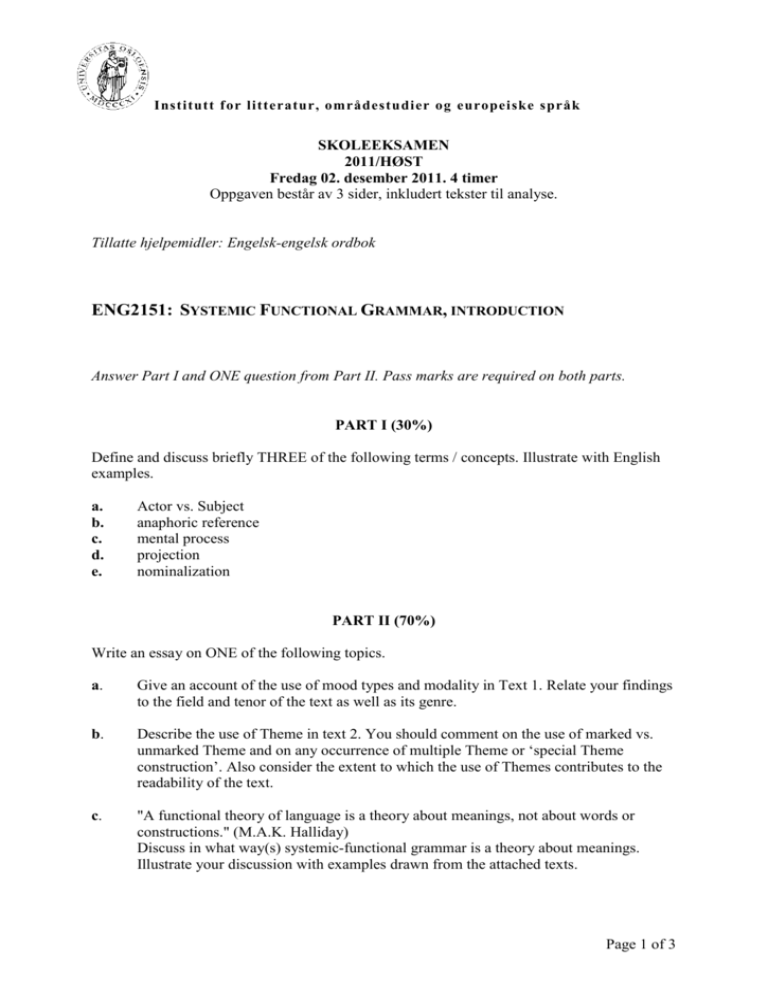
Institutt f or litteratur, områdestudier og europeiske språk SKOLEEKSAMEN 2011/HØST Fredag 02. desember 2011. 4 timer Oppgaven består av 3 sider, inkludert tekster til analyse. Tillatte hjelpemidler: Engelsk-engelsk ordbok ENG2151: SYSTEMIC FUNCTIONAL GRAMMAR, INTRODUCTION Answer Part I and ONE question from Part II. Pass marks are required on both parts. PART I (30%) Define and discuss briefly THREE of the following terms / concepts. Illustrate with English examples. a. b. c. d. e. Actor vs. Subject anaphoric reference mental process projection nominalization PART II (70%) Write an essay on ONE of the following topics. a. Give an account of the use of mood types and modality in Text 1. Relate your findings to the field and tenor of the text as well as its genre. b. Describe the use of Theme in text 2. You should comment on the use of marked vs. unmarked Theme and on any occurrence of multiple Theme or ‘special Theme construction’. Also consider the extent to which the use of Themes contributes to the readability of the text. c. "A functional theory of language is a theory about meanings, not about words or constructions." (M.A.K. Halliday) Discuss in what way(s) systemic-functional grammar is a theory about meanings. Illustrate your discussion with examples drawn from the attached texts. Page 1 of 3 Text 1 Woman's Own: Apple Diet 1 2 3 An apple a day really can keep the doctor away, according to latest research. Apple peel is said to build muscles, keep blood sugar levels under control and lower cholesterol. 4 5 6 Those who eat apples regularly are said to be 20% less likely to suffer heart attacks. Try nutritionist Monica Grenfell's Apple Diet. The diet can help you to lose 5lb a week! 7 8 9 10 Monica says: Apples have always been good for weight loss. They act as a fat-loss accelerator and are high in fibre, 4-5g per apple, which helps stop hunger pangs. The natural sugar in apples also cuts sweet cravings. 11 12 13 14 This plan, which incorporates five apple detox days, is successful as the diet is based on eating rather than depriving yourself. It's easy to stick to and you'll lose around a stone in the first month. So go out and buy a big bag of Cox's Orange Pippins today! 15 16 17 18 19 20 21 22 23 24 Why apples? 1. Apples contain soluble and insoluble fibre, which will dampen the appetite. 2. Studies show soluble fibre, or pectin, turns into a sticky gel in the stomach and stops the body from absorbing sugar too quickly. 3. Apple pectin is also known to help reduce cholesterol. When 26 people ate three apples a day, their cholesterol fell by seven per cent - more than those who ate the same diet with no apples. 4. Pectin stops the body craving food for up to four hours. 5. They contain phytochemicals with antioxidant properties, which fight the effects of ageing on the body. 25 26 27 28 Watch out for... Apples are high in fibre and wonderful for anyone suffering constipation as they're a natural laxative. However, do not exceed five apples a day and never give more than a couple of slices to very small children. (Source: http://www.goodtoknow.co.uk/diet/278314/Woman-s-Own--Apple-Diet) Page 2 of 3 Text 2 Beginnings 1 Who was the first person ever to worry about English usage? Maybe it was a topic 2 which preoccupied Beowulf and his friends in the Germanic beer-halls, but all the 3 evidence suggests that the talk there was less about how to deal with grammar than 4 how to deal with Grendel. The only clauses that Beowulf had to deal with were at the 5 end of that half-human monster’s fingers. 6 In their monasteries, though, things were rather different. The Beowulf story is 7 preserved in a manuscript which dates from around the year 1000. And not long after, 8 we find the first recorded example of a conversation in English, in the Colloquium of 9 Abbot Ælfric (pronounced al-fritch) of Eynsham. Buried within this document is the 10 first brief mention in the English language of a concern to ‘get things right’. 11 Ælfric was born about 955 and died about 1020. He was educated in the 12 Benedictine monastery at Winchester, and became a teacher at the abbey of Cernel in 13 Dorset. Then in 1005 he was appointed abbot of the newly founded monastery at 14 Eynsham, near Oxford. A translator of the Bible and the author of many homilies in 15 Old English, he also wrote a Latin grammar – and, as a result, came to be known as 16 Ælfric the grammarian. 17 English at the time was still emerging as a language of literature. In the ninth 18 century, Kind Alfred had eloquently pleaded for more works to be written in English 19 and to be translated into English, and bemoaned the fact that there were so few 20 people capable of doing such work. A century on, things had much improved, but the 21 classical language was still the dominant voice of debate. Ælfric wrote his Colloquy in 22 Latin, and it was one of his students who later turned it into English, adding tiny 23 glosses above the Latin words in a manuscript. (From The Fight for English by David Crystal) Page 3 of 3
